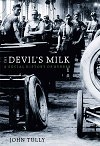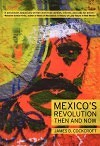Americas
n the 1980s the Brazilian economy suffered a long spell of stagnation and inflation caused by the foreign debt crisis affecting all indebted countries. That crisis triggered an acute inflationary process that reached 2,012.6 percent in 1989 and 2,851.3 percent in 1993, according to the general price index from the Getulio Vargas Foundation. The second half of the 1980s and the first of the 1990s saw the deployment of successive anti-inflationary plans, starting with the 1986 Plano Cruzado and ending with the 1994 Plano Real.* The period also marked the end of the industrialization strategy known as “import substitution” and the onset of neoliberal policies in Brazil | more…
Since Fernando Collor’s 1989 presidential victory, and most notably since Fernando Henrique Cardoso’s two terms in office (1995-98 and 1999-2002, respectively), economic policies have been enacted in Brazil that represent a subordinate alliance of the country’s dominant classes with international capital. Unfortunately, under President Lula these same sectors have remained in control, and economic policy caters to their interests | more…

Capital, as Marx once wrote, comes into the world “dripping from head to foot, from every pore, with blood and dirt.” He might well have been describing the long, grim history of rubber. From the early stages of primitive accumulation to the heights of the industrial revolution and beyond, rubber is one of a handful of commodities that has played a crucial role in shaping the modern world, and yet, as John Tully shows in this remarkable book, laboring people around the globe have every reason to regard it as “the devil’s milk.” All the advancements made possible by rubber—industrial machinery, telegraph technology, medical equipment, countless consumer goods—have occurred against a backdrop of seemingly endless exploitation, conquest, slavery, and war. But Tully is quick to remind us that the vast terrain of rubber production has always been a site of struggle, and that the oppressed who toil closest to “the devil’s milk” in all its forms have never accepted their immiseration without a fight. | more…
In late November 2006 John Bellamy Foster traveled to Brazil where he delivered addresses on the global ecological devastation of capitalism, and the need for worldwide ecosocialist resistance, at two universities in the state of Santa Catarina: the Regional University of Blumenau and the Federal University of Santa Catarina in Florianópolis. These talks were part of the third annual Bolivarian Days Conference organized by the Institute of Latin American Studies in Brazil. The theme this year was “Social Theory and Eurocentrism in Latin America: The Insurgency of Critical Thought.” The conference provided ample evidence of the vitality of socialist and anti-imperialist critiques both in Brazil and in Latin America as a whole in what is clearly a new era of revolt | more…
The evening before the 2003 invasion of Iraq, I was giving a talk at our main leftist meeting place in the San Francisco Mission District.…I was stunned when an admired leftist comrade began fervently invoking similarities between the Bush administration and the Roman Empire, analogizing Roman legions and the U.S. military. Others piled on, developing the comparison further, also talking hopefully about the ultimate fall of the Roman Empire. I interrupted the ancient history discussion, asking why not look at U.S. history, especially U.S. imperialism in Latin America as a precedent. Silence met my remark, and the discussion of Rome continued. | more…
As authoritatively stated in an editorial in Nature, vol. 436, issue 7049 (July 2005), “Cuba has developed a considerable [scientific] research capability—perhaps more so than any other developing country outside of Southeast Asia.” Cuba has been especially successful in establishing a biotechnology industry that has effectively introduced drugs and vaccines of its own, along with a nascent pharmaceutical industry that has achieved considerable success in exports. Its agriculture and health sectors have been strong beneficiaries of its scientific research. As Nature observed: “It is worth asking how Cuba did it, and what lessons other countries might draw from it.” Indeed, the Cuban case is all the more surprising since it is not only a poor country, but one that has been confronted for decades by a ruthless embargo imposed by the United States, which has been extended to scientific knowledge. Moreover, much of Cuba’s scientific progress has occurred in the decade and a half since the fall of the Soviet Union, which previously had aided it economically and technologically | more…
Venezuelan president Hugo Chávez’s extraordinary speech to the General Assembly of the United Nations in September drew worldwide media attention not simply because he referred to the current occupant of the White House as “the devil” for his nefarious actions as the leader of world imperialism, but also because of his scarcely less heretical praise of MR and MR Press author Noam Chomsky for his book Hegemony or Survival: America’s Quest for Global Dominance. As the foremost dissident intellectual in the United States, Chomsky is generally ostracized by the dominant U.S. media system, treated as a ghost-like or even non-existent figure. The establishment was thus caught off guard when Chávez’s comments suddenly catapulted Hegemony or Survival into the bestseller list, along with another recent Chomsky book, Media Control: The Spectacular Achievements of Propaganda. The speed with which orders for Chomsky’s books piled up in bookstores and Internet distributors across the nation demonstrated beyond any doubt that people are hungry for serious radical critiques of U.S. imperialism but seldom know where to look—since all such dissident views are deemed off limits by the ruling media-propaganda system | more…
The signs point to the fact that the symbol of the Cuban revolution is reaching the end of his road. Even if it does not formally mark the definitive end of almost fifty years of undisputed leadership at the helm of the island republic, Fidel Castro’s handing over of power to brother Raul in late July is surely a precursor to what will happen sooner rather than later | more…
Fidel Castro’s illness in August has nurtured the hopes of Miami-based Cuban émigrés and the U.S. ruling class that a “transition in Cuba” will soon be possible. It is often implied that this is a question of a transition to “democracy” and “free elections.” However, what is actually being planned in Washington, as part of a decades-long strategy, is an immediate transition back to capitalism in Cuba—at whatever the cost to the Cuban people | more…

Written to commemorate the one hundredth anniversary of the first predominantly anti-capitalist revolution in the world, Mexico’s Revolution Then and Now is the perfect introductory text and one that will also sharpen the understanding of seasoned observers. Cockcroft provides readers with the historical context within which the revolution occurred; explains how the revolutionary process has played out over the past ten decades; tells us how the ideals of the revolution live on in the minds of Mexico’s peasants and workers; and critically examines the contours of modern Mexican society, including its ethnic and gender dimensions. Well-deserved attention is paid to the tensions between the rulers and the ruled inside the country and the connected tensions between the Mexican nation and the neighboring giant to the north. | more…
Johann Wolfgang von Goethe’s famous remark, cited by Karl Marx, among others, was surely a part of the sensibility that motivated Harry Magdoff’s life and work. Harry’s writing and scholarship were important achievements and distinguished contributions to the socialist project, but they were grounded in a profound understanding of life, history, and the human condition. The centrality of both theory and life were much in evidence on a clear brisk weekend in early May, when many of the MR extended family—readers, writers, staff, and, of course, the Magdoff family—gathered in New York, on Saturday for a roundtable on Harry’s contributions and the future of MR, and on Sunday for a meeting celebrating, as it turned out, the lives of both Harry and his beloved wife Beadie | more…
In April 2000 Robert W. (Bob) McChesney and John Bellamy Foster joined Harry Magdoff and Paul Sweezy as coeditors of MR. In December 2002, while still coeditor of MR, Bob, working in close collaboration with journalist John Nichols and campaign finance reform advocate Josh Silver, launched Free Press, a nonpartisan media reform organization. From the start Free Press was unique in three ways: (1) it took on the entire gamut of media policy issues with the idea of building a unified grassroots coalition against the corporate-dominated media; (2) it sought to draw popular organizations into the movement for media reform, including organized labor, educators, feminists, civil rights organizations, and environmentalists (and was willing to ally with conservative groups committed to the principles of a free and open media system); and (3) it was dedicated to taking the offensive on media issues by sponsoring legislation in cooperation with members of Congress in an effort to change the status quo. By 2004 Bob’s growing responsibilities as founder, president, and board chairman of Free Press, in addition to his already arduous teaching, writing, and speaking commitments, compelled him to resign as MR coeditor, though he remains a director of the MR Foundation | more…

